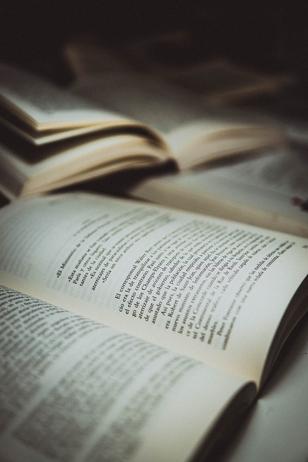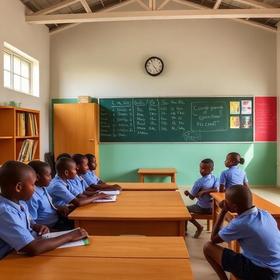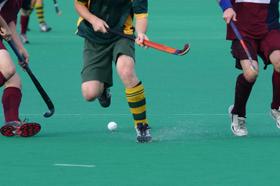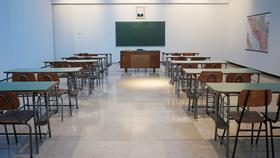 Why Private School? (2025 Edition)
Why Private School? (2025 Edition)
Private schools challenge their students academically,
- They expose their students to more explicit value systems.
- They give their students greater access to well-qualified, experienced teachers.
- Private schools allow their students to feel safer than at a local public school.
When you decide to pursue private schooling for your child, start the research process early.
- Admission to private schools can be competitive.
- Furthermore, finding a school that is a perfect fit for your child and where they will also be accepted takes some time.
Reasons To Look Into Private Schools
A Higher Bar
A major advantage of private education is that your child will likely be challenged to a higher academic standard.
- Private schools tend to be more academically rigorous than public schools.
- Private school students may have to meet more criteria to maintain their grade point averages.
"Private high schools typically have more demanding graduation requirements than do public high schools. Compared with public schools, private schools required more coursework (in 4-year high school programs)." Source: Private School Universe Survey (PSS) from NCES
Private school students can expect more regarding the quality of work, course workload, and special requirements, such as community service or arts participation.
- In some schools, what would typically be considered extracurricular activities are prerequisites for graduation, which ultimately round out students' high school experience.
- The push to meet this higher standard often results in greater student performance.
A 2022 NAEP report found that "Students in private schools scored significantly above the national average in grades four, eight, and twelve." Many private schools also offer a wide range of Advanced Placement (AP) courses, and students often perform exceptionally well, with a higher percentage scoring three or above compared to their public school counterparts. Many private schools also offer the rigorous International Baccalaureate curriculum.
Student-Teacher Ratio
Students of private schools have more opportunities to form relationships with their teachers, which can lead them to greater academic success.
- In such cases, a student is given help for specific academic problems, which can allow the issue to be resolved quickly and correctly.
- Once any issues inhibiting a student's progress have been addressed, the child can go on to achieve at their highest level.
Private schools also tend to focus on controlling their class sizes. The NCES Schools and Staffing Survey 2022 found that "Private high schools, on average, are less than half the size of public schools. In central cities, for example, the average size of a private high school is 398, compared to 1,083 for a public school."
Placing students in small groups tends to foster close working relationships between teachers and students, thus enhancing learning, particularly among at-risk students and those in the early grades.
- Many private schools are now adopting personalized learning plans to cater to students' individual needs, which has been shown to improve academic outcomes significantly.
- Small classes also allow the teachers to understand your child and their specific strengths and weaknesses. Your child will also have more opportunities to speak up and participate in class discussions.
- In addition, students may be offered office hours during which the teacher will be available.
- Students who have worked closely with their teachers are less likely to feel intimidated about using such time to actively seek help from their teachers directly.
This video shows Princeton Day School's athletic center.
Exposure to the Arts
Private schools create their own curricula based on the minimums established by their state's board of education.
- Although they must ultimately prepare students with the same basic courses as public schools, private schools also have the option to add various elements to their programs.
- Private school administrators often develop programs emphasizing the arts more than local public schooling options.
- Schools usually choose to produce elaborate plays and musicals, giving students unique opportunities to explore their talents and express themselves.
Government regulations prevent public schools from spending more than a certain percentage of school funds on the arts. Private schools, on the other hand, are not subject to the same regulations and have more freedom to develop and expand these programs as they wish.
- Some private schools may even offer filmmaking or video production courses, opportunities usually reserved for college students.
- Many private schools now integrate STEM subjects with the arts, fostering a more holistic educational approach.
- This STEAM (Science, Technology, Engineering, Arts, and Mathematics) trend provides students with a more rounded educational experience.
Financial Aid
The tuition that you and the other parents of a private school pay is often allocated to developing and funding special programs frequently restricted in public schools.
- The school can offer other activities, such as field trips, that reinforce the school's curriculum.
- Such trips allow your child to form close friendships and build independence.
- The school may have more funds available to provide supplies to student-run clubs.
- The school may also create programs that better tie the arts or sciences into the general curriculum.
- Recent surveys indicate that private schools are increasingly investing in technology and innovative teaching methods, with a significant portion of the budget allocated to these areas in 2023.
This video offers a look at St. Mark's School of Texas in Dallas.
College Prep
Private high schools can instill in their students the expectation of attending college.
Data from the National Education Longitudinal Study of 1988, "Fourth Follow-up" (NELS: 1988/2000), show that "Students who had attended private school in 8th grade were twice as likely as those who had attended public school to have completed a bachelor's or higher degree by their mid-20s (52 versus 26 percent) and far less likely to have had no postsecondary education."
With college as a focus, students can be more goal-oriented, and often, elements of the school curriculum will be specifically aimed at preparing your child for college. Many private schools are referred to as "college preparatory."
- Private schools often encourage students to participate actively in the college admission process.
- Students may be given more access to college options and made more aware of the requirements to qualify for a specific school.
- Many private schools now offer comprehensive college counseling services, including personalized college application support and SAT/ACT preparation.
Community Service and a Sense of Values
Private schools often put a major emphasis on personal values.
- When choosing a private school for your child, it is possible to find one that incorporates many of your values into its everyday curriculum.
- Private schools often have honor codes and stricter behavioral standards that help students develop into mature adults.
- Parents are often given more say in school policies at private schools.
- Many private schools require that their students complete a mandatory number of community service hours.
- This not only provides the obvious benefit of instilling a sense of respect for the community and the importance of contributing to society, but it also happens to be something colleges especially favor.
Students may also find possible career options while fulfilling this service requirement, such as political involvement to aid the community or counseling for endangered teens.
- Community service experiences teach students that education goes beyond the walls of the school and that it sometimes requires action and initiative.
- Recent initiatives include XYZ Private School's partnership with local nonprofits, where students contributed over 10,000 hours of community service in 2023.
- Many private schools have introduced global citizenship programs, encouraging students to engage in international service projects and cultural exchange programs.
According to The Condition of Education 2001 from the National Center for Education Statistics, "At private schools, a greater percentage of children had parents who were very satisfied with order and discipline than with the school or teachers in 1999."
Discipline and Safety
Beyond the fact that smaller classrooms are by their very nature easier to control, most private schools put special emphasis on discipline.
Even if your child does not have discipline problems, disruptive peers could take away from your child's valuable learning time.
The push for discipline in private schools teaches children self-control.
This is an attribute that will ultimately be required in college, where the student will be far more responsible for attendance and achievement.
- Also, stricter disciplinary policies mean major problems will be handled and eradicated quickly.
- Typical crimes that plague public schools are less common at private schools.
- The 2023 School Crime and Safety Report found that "Students in public schools (35%) were more likely to experience bullying compared to their counterparts in private schools (15%)."
- Private schools also emphasize mental health, with many schools now employing full-time counselors and offering wellness programs.
The Condition of Education 2002 states that "Private school teachers were more likely than public school teachers to say that they had a lot of influence on setting student performance standards (63 versus 38 percent) and on student discipline policy (48 versus 30 percent)."
A Word About Teachers
Well-qualified, experienced teachers are the hallmarks of a private school education.
- It's the reason we parents pay to educate our children.
- To survive, private schools must maintain their reputations and create positive word of mouth.
- To this end, private schools are generally very selective about who they place in front of their students.
- They choose educators with training specific to the subject they will be teaching.
- Recent surveys show that private school teachers often hold advanced degrees, with a significant percentage having a master's degree or higher in their subject area.
- Private schools usually invest in continuous professional development for their teachers, ensuring they stay updated with the latest educational practices.
A Community in Itself
When you enroll your child in a private school, your family becomes part of a network of families with the same goals.
- Parents at private schools are more involved in the students' lives and various school events.
- As a parent, you may have the opportunity to connect with other parents to discuss the lives of your children.
- Such relationships allow parents to learn from each other and support each other.
- The students also benefit from the community atmosphere of private schools.
The particular personalities of private schools often lead the students to have a strong sense of pride and loyalty to the school and its community.
- The student may also benefit from affiliation to the school far beyond graduation day.
- Many private schools have alums mentoring programs that connect older alums with newer ones.
- Recent graduates may find internship opportunities with alumni who have been working in their field of interest.
- For example, XYZ Private School's parent association recently organized a successful fundraiser, raising over $100,000 for new school facilities.
- Private school alumni networks are also robust, providing recent graduates with valuable mentorship and career opportunities.
Every Family has its own requirements.
Despite the numerous benefits of private schooling, it must be said that private school is not for every child.
- Some children would benefit from the diversity a public school can offer.
- Some parents would prefer their children to be more focused on the core subjects rather than the arts and extracurricular interests.
- And, of course, the financial burden that a private school brings is considerable.
- No student is the same as another, and only a parent can know the best option for their child.
- Any child, whether in private or public school, will need the active participation of their parents to achieve true success.School Choice
The major advantage of private schooling is the choice. Rather than sending your child to a public school that is required based on geography, now you have opened up a selection of several schools that may have very different educational styles and emphases simply because you are deciding on private education.
- Every private school has a unique personality, and with some research, certain schools will emerge from the pool as having more features that will benefit your child.
- Perhaps the school is affiliated with your family's religious faith, and your child can be given a religious education along with their core studies.
- The school may emphasize writing or encourage self-expression.
- With the wide variety of private schools available, selecting a school that will help your child shine and develop the values you find most important is easy.
Conclusion
No choice can guarantee that your child's formative years will go smoothly.
- Parents should always remain highly active participants in their children's education.
- Still, to give a student the most advantages and opportunities, a private school can be an attractive option.
- Private schools can reduce worries about safety, increase a child's exposure to discipline, offer reduced class sizes, and provide a suitable environment for high academic achievement.
- In many cases, a private school can be much more than that; it can provide a community environment for your family and special opportunities your child would not have otherwise.
- Regardless of the choice between public and private education, parents' active participation remains crucial for a child's success.
- With the rise of online and hybrid learning models, private schools are also adapting to provide flexible and innovative educational experiences.
Ready to Unlock Your Child's Full Potential?
- Discover how private schools can provide a more rigorous academic environment and smaller class sizes.
- Be part of a community that fosters growth and success.
- Explore the unique benefits of private education and find the perfect fit for your child today!
Start Your Journey Now:
- Research Top Private Schools in your area and explore their unique offerings.
- Learn More about the academic, extracurricular, and community service opportunities available.
- Connect with Other Parents and alumni to understand the long-term benefits of private schooling.
Don't forget to visit PrivateSchoolReview.com to begin your search and give your child the best possible start in life.
Questions? Contact us on Facebook, Instagram, and YouTube. @privateschoolreview
#PrivateSchool #Education #Parenting #AcademicExcellence #StudentSuccess #CommunityEngagement #CollegePrep #PersonalizedLearning












